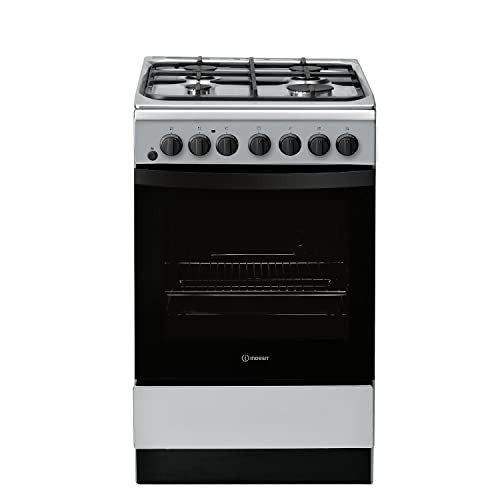Sales Ovens It's Not As Hard As You Think
The Comprehensive Guide to Sales Ovens: Understanding Their Importance, Types, and Best Practices
Sales ovens, a classification of commercial cooking equipment, are key gamers in the culinary and foodservice industry. These home appliances, developed to prepare food in big amounts efficiently, are important in dining establishments, catering services, and other food establishments. This short article looks into the importance of sales ovens, their types, and best practices for picking and utilizing them efficiently.
What Are Sales Ovens?
Sales ovens, broadly defined, are cooking devices utilized primarily in business kitchens to prepare, bake, or heat different food products at scale. Fan Ovens For Sale enables them to manage higher volume cooking compared to standard property ovens. Offered the nature of food service, sales ovens typically include innovative innovations that promote speed, efficiency, and even cooking.
Significance of Sales Ovens in the Food Industry
Sales ovens play an essential role in food production for numerous reasons:
- Efficiency: Sales ovens can cook food faster and equally than traditional ovens, permitting chefs to prepare meals in less time.
- Consistency: With exact temperature level controls, sales ovens make sure that the food is prepared uniformly each time, keeping quality across countless portions.
- Versatility: Many sales ovens can manage numerous cooking techniques including baking, roasting, broiling, and even steaming, making them appropriate for diverse menus.
- Energy Savings: Modern sales ovens are typically developed to be energy-efficient, minimizing functional costs for companies.
Kinds Of Sales Ovens
The marketplace uses a variety of sales ovens, each fit for particular cooking needs and kinds of food. Here are the most common types:
Type of Oven
Description
Best For
Convection Ovens
Use a fan to distribute hot air, ensuring even cooking.
Baking and roasting products.
Combi-Ovens
A mix of convection and steam cooking, offering versatility in cooking techniques.
Varied menus needing steaming and baking.
Conveyor Ovens
Utilize a moving belt to continuously cook food, ideal for high-volume operations.
Junk food and pizza.
Deck Ovens
Feature different compartments (decks) that can be individually controlled, using high efficiency.
Artisan bread and pastries.
Rotisserie Ovens
Created to slowly roast meat on a spit, offering tender and juicy results.
Roasted meats.
Selecting the Right Sales Oven
Picking the appropriate sales oven for a specific organization needs factor to consider of several aspects:
- Volume Needs: Assess the volume of food that needs to be prepared. Higher volume means going with conveyor or combi-ovens.
- Menu Diversity: Understanding what type of dishes will be cooked can assist the selection procedure. For example, a bakery may require a deck oven, while a diner might take advantage of a stove.
- Area Availability: Measure kitchen area to make sure the ovens fit correctly and have actually needed ventilation.
- Budget: Commercial ovens can differ substantially in rate, so establish a budget that considers long-term functional savings.
- Energy Efficiency: Opt for ovens that have energy rankings to keep energy costs manageable.
Best Practices for Using Sales Ovens
Successfully running a sales oven includes more than simple usage. Here are some best practices to keep in mind:
Regular Maintenance: Schedule regular upkeep to clean and examine the performance of the oven. This makes sure longevity and performance.
Preheating: Always pre-heat the oven to the preferred temperature before positioning food inside for consistent cooking results.
Make use of Thermometers: For accuracy, use an oven thermometer to ensure that temperature levels remain consistent, specifically for baking.
Follow Cooking Times: Adhere to suggested cooking times based upon the kind of food being prepared. Changes might be needed for various ovens.
Prevent Overcrowding: Ensure sufficient area around food items in the oven to allow for appropriate air circulation.
The Future of Sales Ovens
As technology advances, so do the abilities of sales ovens. Developments such as smart innovation, energy-efficient styles, and enhanced safety functions are becoming more popular. These improvements guarantee to boost cooking efficiency while likewise fulfilling sustainability goals.
FAQs about Sales Ovens
Q1: How do I clean my sales oven?
A: Regular cleaning involves removing any food debris, wiping down surface areas with non-corrosive cleaners, and following specific cleansing recommendations from the producer.
Q2: What's the lifespan of an industrial oven?
A: Typically, a well-kept industrial oven can last anywhere from 10 to 20 years, depending on use and maintenance.
Q3: Can sales ovens be utilized for baking?
A: Yes, numerous kinds of sales ovens, specifically convection and deck ovens, are specifically developed for baking a range of products.
Q4: Are there energy-efficient choices for sales ovens?
A: Yes, a number of manufacturers offer energy-efficient models that minimize energy usage without sacrificing performance.
Q5: How often should I perform upkeep on my sales oven?
A: It's a good idea to conduct routine maintenance checks every month or quarter, depending upon use levels. In addition, a comprehensive inspection ought to occur at least annually.
Sales ovens are indispensable in the modern-day cooking landscape. Their capability to cook large amounts of food effectively makes them essential for restaurants, catering services, and other food establishments. By understanding the different types, selecting the right oven, and adhering to best practices, food service businesses can optimize their cooking processes, boost their offerings, and ultimately delight their customers with outstanding culinary developments.
